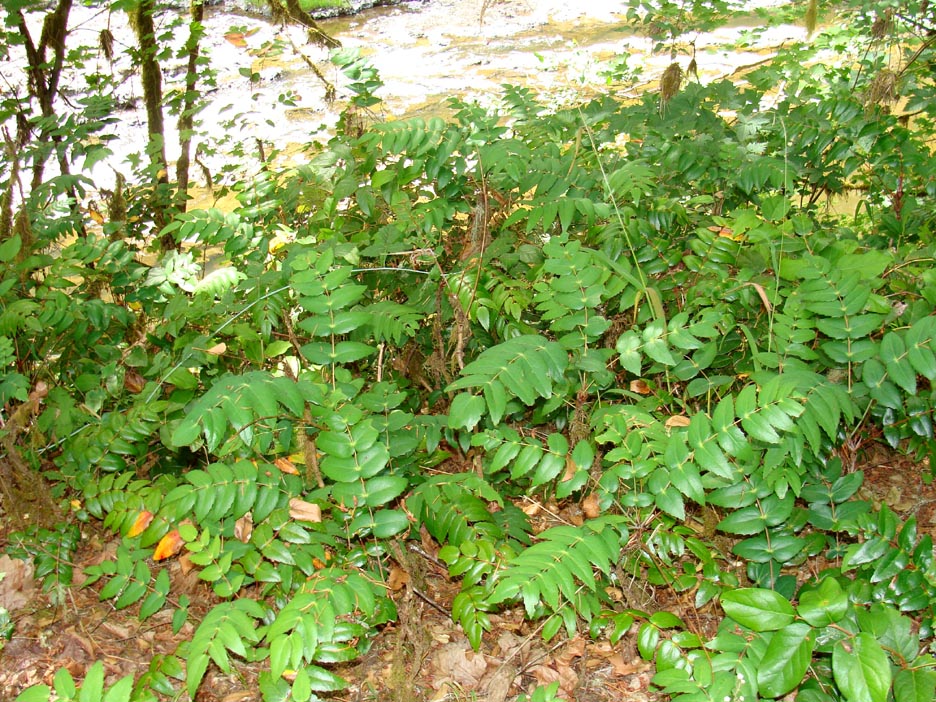Berberis aquifolium
Common name: Oregon grape
Family: Berberidaceae
Leaf: Compound, (up to 10" long), with 5-9 spiny, ovate to oblong ovate leaflets (up to 3" long). Leaflets holly-like. Red-tinted in spring, glossy dark green by summer. Purplish-red in fall.
Flowers: terminal racemes of sulfuric yellow flowers in April and May, showy
Fruit: blue-black berry, ripening by early fall
Habit: spreading evergreen shrub; Form: upright, open, mounded
Height: 3-6' Spread: 2-5
Culture: Best grown in organically rich soils in part shade to full shade. Ideally in part shade. Good to plant is a semi-protected area, as protection from strong winds. Plants spread by stolons to form colonies. Unless you desire a colony/naturalized effect, remove suckers when they appear. Solo specimens tend to not fruit very well- best to plant a couple or a few together to have good fruit production (if this is a desired trait). B. aquifolium tend to get Mahonia rust.
Uses: Best in small groupings in shady areas. As a shrub border or foundation plantings. Shade gardens.



No comments:
Post a Comment